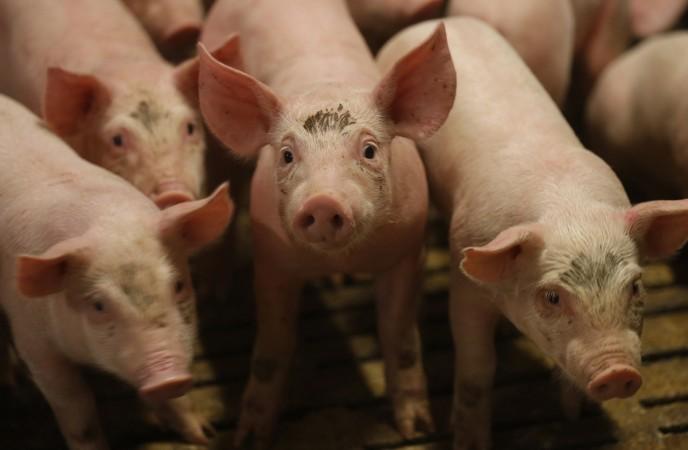
The U.S. Food and Drug Administration (USFDA) said Friday it would revoke the approval of an antibiotic used to treat various conditions in pigs because the drug may leave various cancer-causing residues, affecting humans who consume pork.
The agency said in a statement that the drug, carbadox, could pose a potential risk to humans who consume pork, especially pork liver.
The USFDA added the manufacturer of carbadox, Phibro Animal Health, has failed to provide sufficient scientific data to demonstrate the safety of this drug, given the evidence that carbadox may result in carcinogenic residues.
"As a result, FDA's Center for Veterinary Medicine is taking legal action to remove this product from the marketplace," said Michael R Taylor, FDA deputy commissioner for foods and veterinary medicine.
The agency said Phibro Animal Health has been given a notice period of 30 days to respond to the USFDA observations, failing which it would start removing the drug from the markets.
Pork liver is used to make liverwurst, hot dogs, lunchmeat and some types of sausage, widely used in the U.S.
The USFDA said it is not recommending that people make dietary changes, while the agency is working to remove carbadox from the market.
It said the potential cancer risk is based on an assumed lifetime consumption of pork liver or other pork products containing carbadox residues, and short-term changes in diet are unlikely to affect a person's lifetime risk.
The agency said it is taking the action as the removal of product from the market would reduce the lifetime risk to consumers.
In general, eating a varied diet may reduce the potential negative effects of eating too much of any one food, the USFDA said.
It said the USFDA-approved alternative antibiotics are also available to pork producers to treat swine.
Carbadox was first approved in the early 1970s for use in swine to control swine dysentery and bacterial swine enteritis. It has also been used for weight gain and feed efficiency.





!['Kaise ho bhai..': PM Modi shook hands with Akshay Kumar at a media summit in Delhi [Watch]](https://data1.ibtimes.co.in/en/full/806317/kaise-ho-bhai-pm-modi-shook-hands-akshay-kumar-media-summit-delhi-watch.jpg?w=220&h=138)





